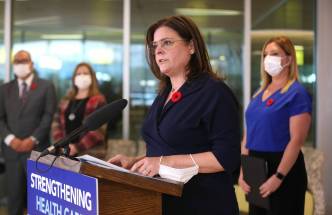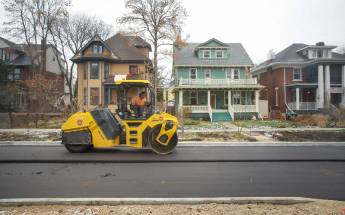Wet road-construction season pushes projects into next year
Read this article for free:
or
Already have an account? Log in here »
To continue reading, please subscribe:
Monthly Digital Subscription
$0 for the first 4 weeks*
- Enjoy unlimited reading on winnipegfreepress.com
- Read the E-Edition, our digital replica newspaper
- Access News Break, our award-winning app
- Play interactive puzzles
*No charge for 4 weeks then price increases to the regular rate of $19.00 plus GST every four weeks. Offer available to new and qualified returning subscribers only. Cancel any time.
Monthly Digital Subscription
$4.75/week*
- Enjoy unlimited reading on winnipegfreepress.com
- Read the E-Edition, our digital replica newspaper
- Access News Break, our award-winning app
- Play interactive puzzles
*Billed as $19 plus GST every four weeks. Cancel any time.
To continue reading, please subscribe:
Add Free Press access to your Brandon Sun subscription for only an additional
$1 for the first 4 weeks*
*Your next subscription payment will increase by $1.00 and you will be charged $16.99 plus GST for four weeks. After four weeks, your payment will increase to $23.99 plus GST every four weeks.
Read unlimited articles for free today:
or
Already have an account? Log in here »
Hey there, time traveller!
This article was published 10/11/2022 (1125 days ago), so information in it may no longer be current.
Nearly three dozen Winnipeg road construction projects that should have ended this year are now delayed into 2023, and rain is being blamed as a key culprit.
As of late October, this year had become Winnipeg’s wettest on record. The city said 160 of the 200 construction projects scheduled in 2022 will be completed; 30 were unexpectedly delayed and 10 others were designed with multi-year schedules from the start.
Since construction season can begin in early May and end as late as mid-November, depending on weather, the final number could still fluctuate.
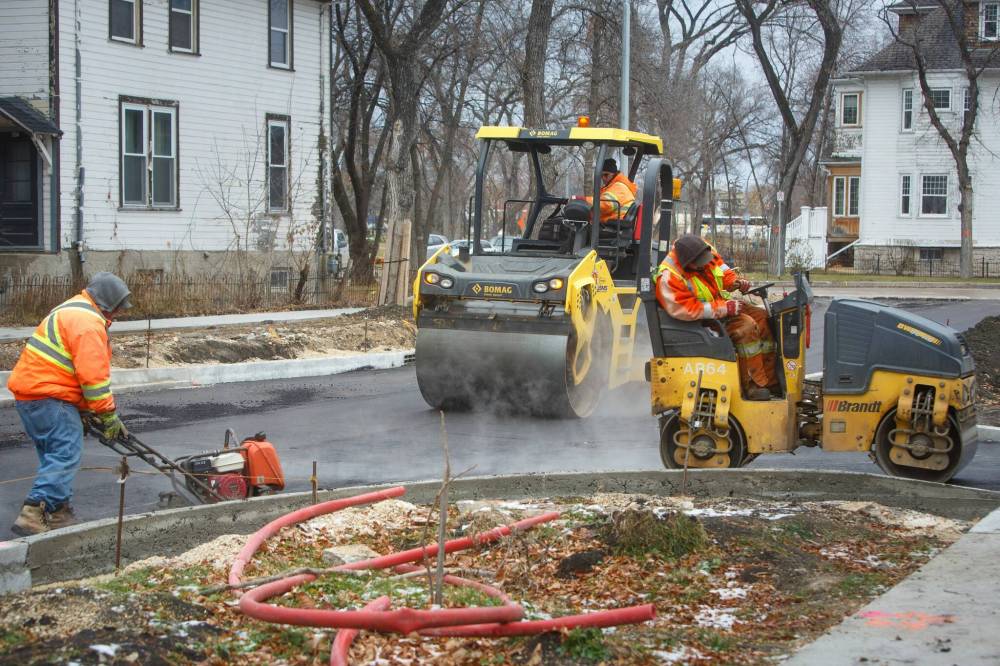
Some projects were finally completed this week after significant delays that left area residents frustrated, including a lengthy reconstruction of Canora Street between Preston and Westminster avenues, which forced Chris Friesen to find alternative parking for several weeks and cut off access to a sidewalk his daughter uses to walk to school.
“Parking has been very frustrating because we rely on the street, so we’ve been parking on whatever street around us has room. Our sidewalk got removed and didn’t get replaced for around a month… (which was) also a huge disruption for (receiving) mail,” said Friesen.
According to a city notice, the project was expected to take about six weeks; however, Friesen said work started in early August and took about three months to complete, finally wrapping up on Tuesday.
“(Streets in) the mature, established neighbourhoods… deteriorate and then, when they finally do get around to fixing them, this is how it goes and it takes twice as long as it should, with the kind of disruptions that we (just) experienced,” he said.
Andrew Gies, who also lives in the area, said the project dragged on so late into the year that he began to worry about winter travel implications.
“If you’re doing exterior construction in a city like Winnipeg, when it comes later in the season… My concern is that they weren’t going to get it finished, and then what? How does that affect our (snow) plowing?” said Gies.
City contracts should do more to ensure construction happens on weekends, when good weather allows, to help reduce delays and end the road-renewal season earlier, he said.
“I don’t think you should be planning to do this kind of work where it extends into November. In our climate, that doesn’t make much sense,” he said.
Coun. Janice Lukes, who heads council’s public works committee, said multiple projects in her Waverley West ward saw deadlines extended into 2023 due to poor weather, including road-renewal efforts on Chancellor Drive and Lakeshore Road.
“We had the wettest spring and summer on record… and (faced) additional costs because of it,” Lukes said. “They’ve had to hire generators and pumps to pump out the water… (construction crews) can’t work when it’s sopping wet.”
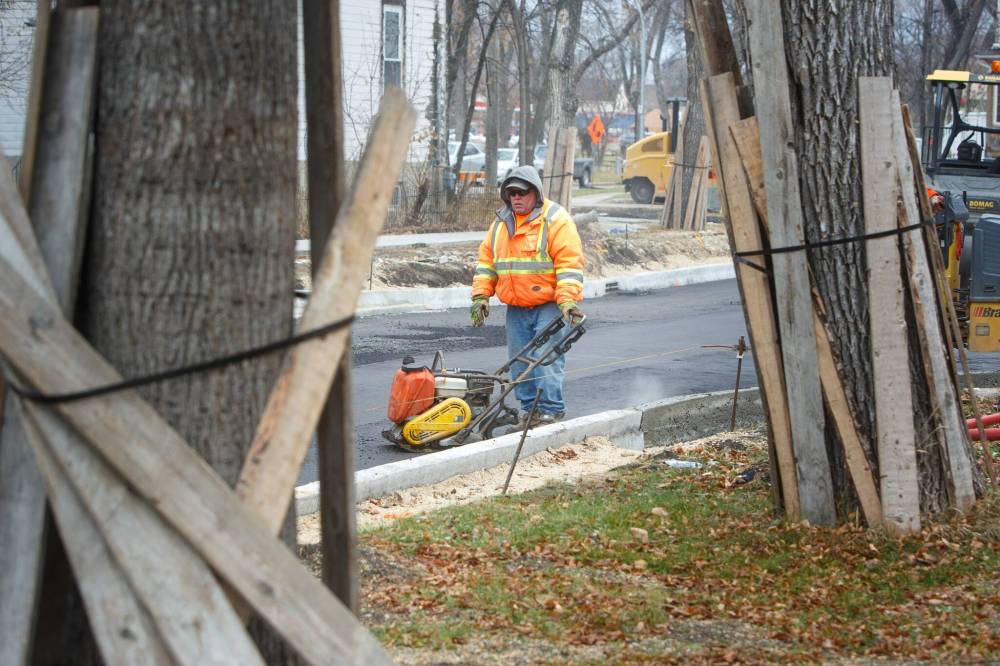
While the number of projects extended into next year is higher than in the past, the practice of carrying over projects isn’t new. A total of 17 unplanned carryovers extended past the 2019 construction season, followed by 20 in 2020 and 25 in 2021, city spokeswoman Julie Horbal Dooley told the Free Press in an emailed statement. (The city cautions the 2021 figure is skewed because 14 of the delayed projects were affected by late advertisement.)
In addition to inclement weather and wet ground conditions, contractor workload and co-ordinating work with other agencies, including utilities, can also lengthen project timelines, added Horbal Dooley.
This year’s record road budget also meant many projects were underway at the same time, said Michelle Stainton, a project management engineer with the city.
“In spite of all the frustrations that we’re having at this point… we did accomplish a great deal of work. It was a record year and there are going to be hiccups, but we did a lot,” said Stainton.
The city budgeted $165 million for road renewal in 2022, which will eventually renew 175 lane kilometres of roads, while also enhancing sidewalks and active-transportation routes.
“There’s definitely more (delays) than we would have liked this year but it’s manageable,” Stainton said. “We certainly have things to do right out of the gate in the spring.”
The city already encourages some weekend work to ensure its largest construction contracts stay on schedule as much as possible, including sometimes stipulating that Saturday be deemed a working day, though companies plan their own individual schedules, she said.
Companies are highly motivated to complete projects on time and are typically charged thousands of dollars per day when they fall behind key deadlines, a construction-industry leader said.
“I can assure you there isn’t a contractor out there that wants to be on a project (that sits) any longer than (it) absolutely has to,” said Chris Lorenc, president of the Manitoba Heavy Construction Association.
Timing was especially challenging this season due to the late, wet spring, he said.
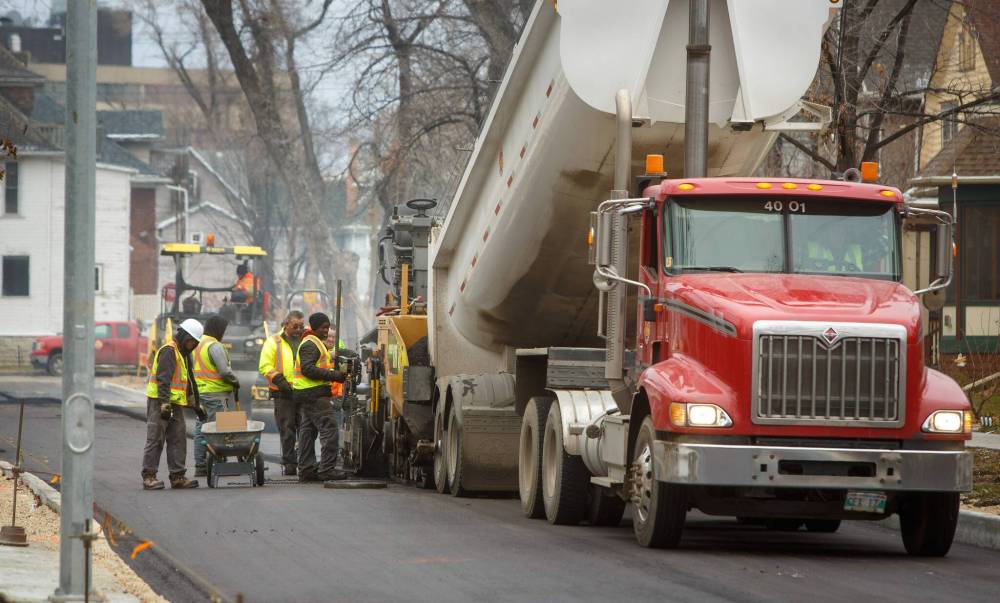
“It has a ripple effect when contractors schedule their work in anticipation of a normal start and that normal start is delayed because of matters beyond the contractors’ control. It’s going to push everything back,” he said.
The industry also understands the disruption construction can cause, Lorenc said.
“We really appreciate the public’s patience. We try to do the work as quickly and as well as we can,” he said.
The city has also expanded some projects to a larger scope than in the past, which may have delayed timelines for some work, Lorenc noted, adding he expects that practice will reduce hiring, equipment and planning costs, saving tax dollars in the long run.
Joyanne.pursaga@freepress.mb.ca
Twitter: @joyanne_pursaga

Born and raised in Winnipeg, Joyanne loves to tell the stories of this city, especially when politics is involved. Joyanne became the city hall reporter for the Winnipeg Free Press in early 2020.
Our newsroom depends on a growing audience of readers to power our journalism. If you are not a paid reader, please consider becoming a subscriber.
Our newsroom depends on its audience of readers to power our journalism. Thank you for your support.

